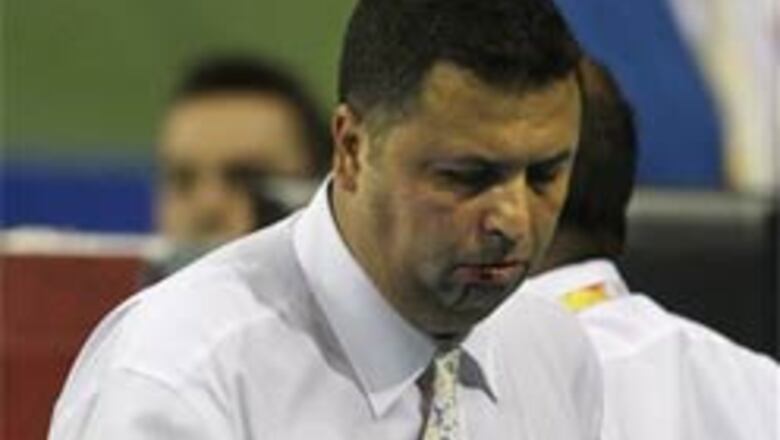
views
Beijing: A kick in the face of a taekwondo referee by furious loser Angel Valodia Matos had officials in damage control on Sunday as they tried to prop up a sport which is fighting for Olympic survival.
Controversy was the last thing taekwondo needed in Beijing following angry scenes in Athens four years ago ignited by a storm of protests over refereeing decisions.
But Cuban fighter Matos played into the hands of critics at Beijing by kicking Swedish referee Chakir Chelbat as soon as he was sent off for taking too much injury time in the middle of a +80kg bronze medal bout.
Chelbat required stitches to a cut lip and the World Taekwondo Federation took immediate steps to place a lifetime ban on Matos, and acknowledged the damage to the sport.
Taekwondo has already survived one vote by the International Olympic Committee to trim the number of sports, but it faces another vote next year while cricket, rugby, golf and karate are lobbying for inclusion.
"I feel this can be part of our growing pain," said World Taekwondo Federation Secretary General Yang Jin-Suk, pleading for the sport to have time to clean up its image.
"We are still a little baby. But we are not asking for mercy," Yang said.
"With your blessings, we will overcome all the difficulties. We're going to show what the true taekwondo is down the road."
But US team leader Herb Lopez questioned whether taekwondo could remain in the Games while competitors were constantly frustrated by refereeing decisions.
"If this is truly what taekwondo is about, then maybe taekwondo shouldn't be in the Olympics. Maybe they should fix it and then let it come back," he said.
"There is a feeling that we won't survive the next vote. We must present a pristine environment."
Britain's Sarah Stevenson scored a notable victory when she lodged an appeal after losing her quarter-final to China's two-time champion Chen Zhong.
Despite a multitude of protests since the martial art made its Olympic debut at the 2000 Games, Stevenson's appeal was the first ever upheld by the jury and she went on to win a bronze medal.
Aware that its Games future was on the line before Beijing, the WTF held seminars for referees and expanded the judging panel from three to four.
"The transparency of the refereeing and judging system is like never before," WTF president Choue Chung-Won said before the competition began.
The WTF has also developed electronic head and body gear that should accurately register blows.
It was tested for the first time at the Asian championships in April where it was found to require more technical adjustments.
"Definitely, it will be introduced in the 2012 London Games," Choue said.
"We will have to use it in our championships and other official competitions before that," he said. "So very soon, you will see it in a different way."




















Comments
0 comment